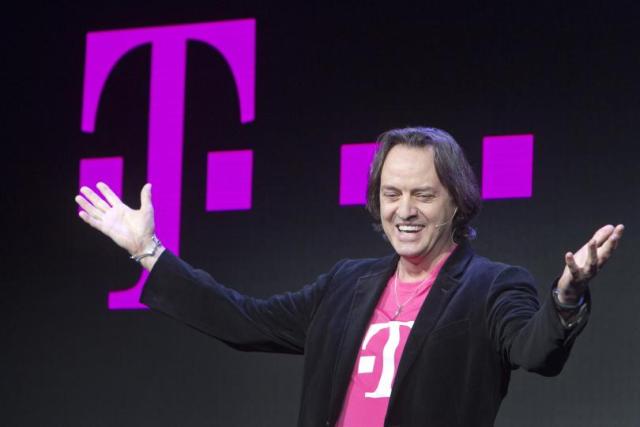
The Enforcement Bureau by FCC has reached a settlement with T-Mobile for a fine of at least $48 million.
This settlement follows an investigation regarding inadequately disclosed speed and data restrictions for its unlimited data plan subscribers.
The company policy allows it to reduce data speeds after the monthly data threshold is up on unlimited plans for T-Mobile or MetroPCS customers.
This is in contrary to company advertisements and disclosures conveying to unlimited data plan customers that it is better and faster than their previous service.
This goes against the 2010 Open Internet transparency rules asking broadband providers to give accurate and sufficient information to consumers, enabling informed choices at the user end.
The settlement is composed of a $7.5 million fine in addition to $35.5 million for T-Mobile and Metro PCS consumer benefits and at least $5 million in services and equipment to American schools to bridge the homework gap issue with current students.
Also, eligible subscribers will be offered discounts on accessories and additional data.
Complaints from T-Mobile and MetroPCS customers claiming to be misled with unlimited data plan led to the investigation.
The customers were not aware of de-prioritized data speeds after a fixed amount of data has been used each month.
The Top 3 Percent Policy of T-Mobile de-prioritizes its heavy data users during network contention or congestion.
Against the advertised speeds of the data plan, this policy renders data services unusable for many hours per day, limiting user data access.
The company did not inform that its unlimited data plan customers will slow down after 17 GB usage per month.
Under the settlement, T-Mobile will update its disclosures to clarify its Top 3 Percent Policy and its effect on users and data speeds.
T-Mobile will also inform customers individually if the data usage crosses the threshold value.
T-Mobile will also follow the Consumer Broadband Label by FCC, offering information and clarity on service terms of speed, reliability and cost in terms of fees and add-on charges.
Also, T-Mobile will update and improve its disclosures related to unlimited plans, disclosing all restrictions on the amount and speed of data provided for unlimited data plans while removing the tag of ‘unlimited’.
Also such data plan customers will be excluded from the Top 3 Percent Policy or else the speed reductions for unlimited plans will meet the minimum speed advertised for it.
T-Mobile will pay $7.5 million to the U.S. Treasury, alongside funding a $35.5 million consumer benefit program for the unlimited mobile data customers of T-Mobile and MetroPCS.
Under the program the users will have 20 percent off on the regular price for any in-stock accessory and 4 GB of additional data if they use the Simple Choice MINT plan by T-Mobile or a tablet plan by MetroPCS.
Eligible T-Mobile and MetroPCS customers will receive notice about these benefits by December 15, 2016.
The homework gap observed in low-income school districts will be addressed by T-Mobile by offering free devices, such as tablets, for public schools students to complete school work by taking it home.
In addition, mobile broadband services will be offered to the devices at a lower cost to the schools, and free of cost to students or families.
The program involving 5,000 students per quarter for four years i.e. 80,000 net students, will begin by October 2017
RELATED: AT&T fined $105 mn for Unauthorized Billing mobile consumers
The Commission proposed a similar $100 million fine against AT&T Mobility for misleading its customers about unlimited mobile data plans, in June last year.
ALSO READ: AT&T fined $450000 for illegal Wireless Service
T-Mobile was the first to drop overage charges in 2014 with its Simple Choice plans, offering unlimited talk and text while paying for an high-speed data use.
T-Mobile One was also unveiled later, offering unlimited high-speed data at $70 for the first line, $50 for the second, and $20 for each additional line from three to eight.
Vina Krishnan
[email protected]





